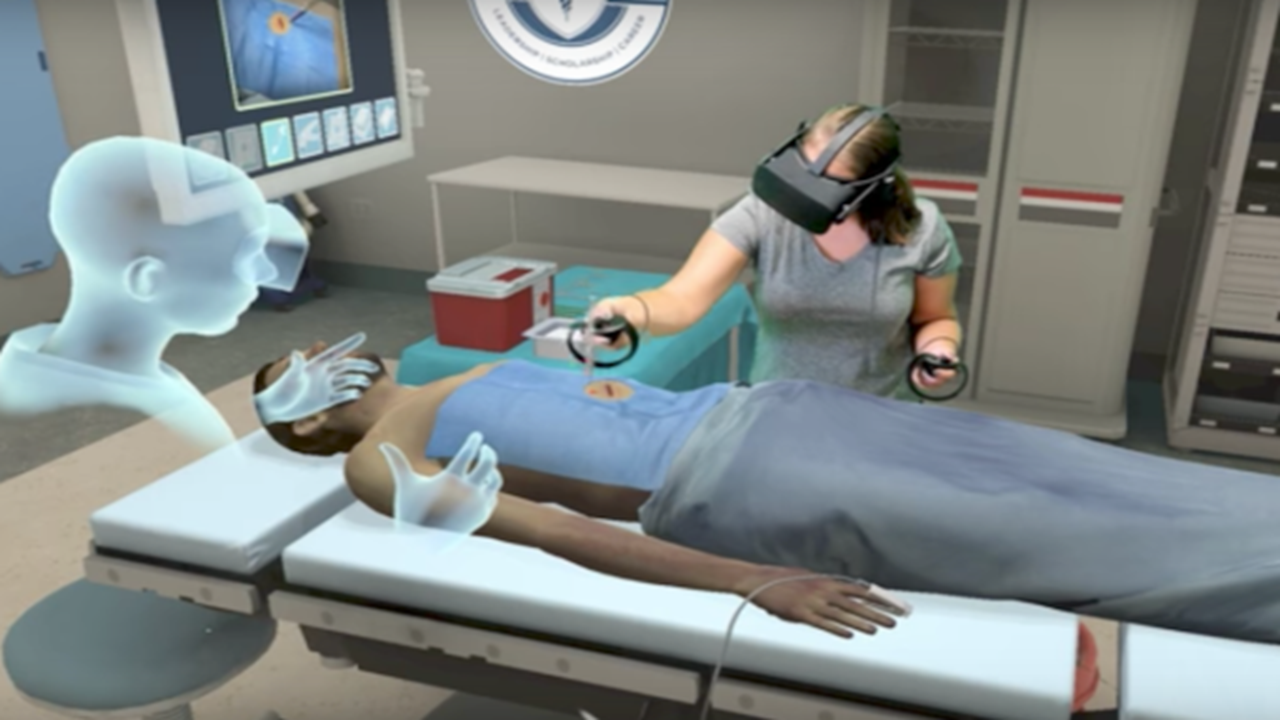by: Husam Yaghi and Mohamed Yaghi
In a previous article, we explored the impact of the metaverse on education, focusing on K-12 learning. Now, we delve into the realm of medical education and how the metaverse is poised to revolutionize the way students and professionals learn, collaborate, and train in this field. This article uncovers the game-changing aspects of the metaverse in medical education and highlights key areas of transformation.
Enhanced Visualization:
By leveraging virtual reality (VR), students can embark on immersive journeys to explore intricate anatomical structures, physiological processes, and surgical procedures. This lifelike visualization enables a deeper understanding of complex concepts and enhances knowledge retention.
Simulated Training Environments:
Within the metaverse, students can engage in simulated training environments that offer a safe and controlled space for honing their skills. Virtual patient simulations provide an invaluable opportunity to practice diagnosing and treating various medical conditions, preparing students for real-life scenarios.
Global Collaboration:
The metaverse breaks geographical barriers, enabling virtual conferences, symposiums, and workshops where experts from around the world can come together to share knowledge and expertise. This global collaboration fosters cultural competence and promotes interdisciplinary learning, enriching the educational experience.
Continuing Education:
Virtual libraries and interactive scenario-based simulations within the metaverse empower medical professionals to stay updated with the latest research, case studies, and clinical guidelines. This dynamic approach to continuing education ensures that practitioners remain at the forefront of medical advancements.
Leading Enablers:
Several companies are at the forefront of driving metaverse-enabled medical education. Here are a few notable examples:
VictoryXR: An immersive learning platform offering a wide range of courses, including lifelike cadaver lab simulations, to provide students with a realistic and engaging learning experience.
Osso VR: A specialized virtual reality platform tailored for medical training, offering realistic surgical simulations to enhance the skills of medical professionals.
SimX: An augmented reality platform that provides interactive medical simulations, allowing students to practice procedures, diagnose patients, and manage emergencies in realistic scenarios.
While the metaverse is still in its early stages, its potential to transform medical education is undeniable. By harnessing enhanced visualization, simulated training environments, global collaboration, and continuous education opportunities, the metaverse empowers the future generation of healthcare professionals.
Additional reading:
https://www.linkedin.com/pulse/medical-problems-augmented-virtual-reality-solve-pauly-suchy/
https://youtu.be/hYS9-lEcJW4?si=V414mvutukv5sm6P
https://blog.adobe.com/en/publish/2018/01/02/vr-change-healthcare-providers-learn
https://www.linkedin.com/pulse/metaverse-healthcare-perfect-partnership-mohammad-j-sear/
Disclaimer: “This blog post was researched and written with the assistance of artificial intelligence tools.”
